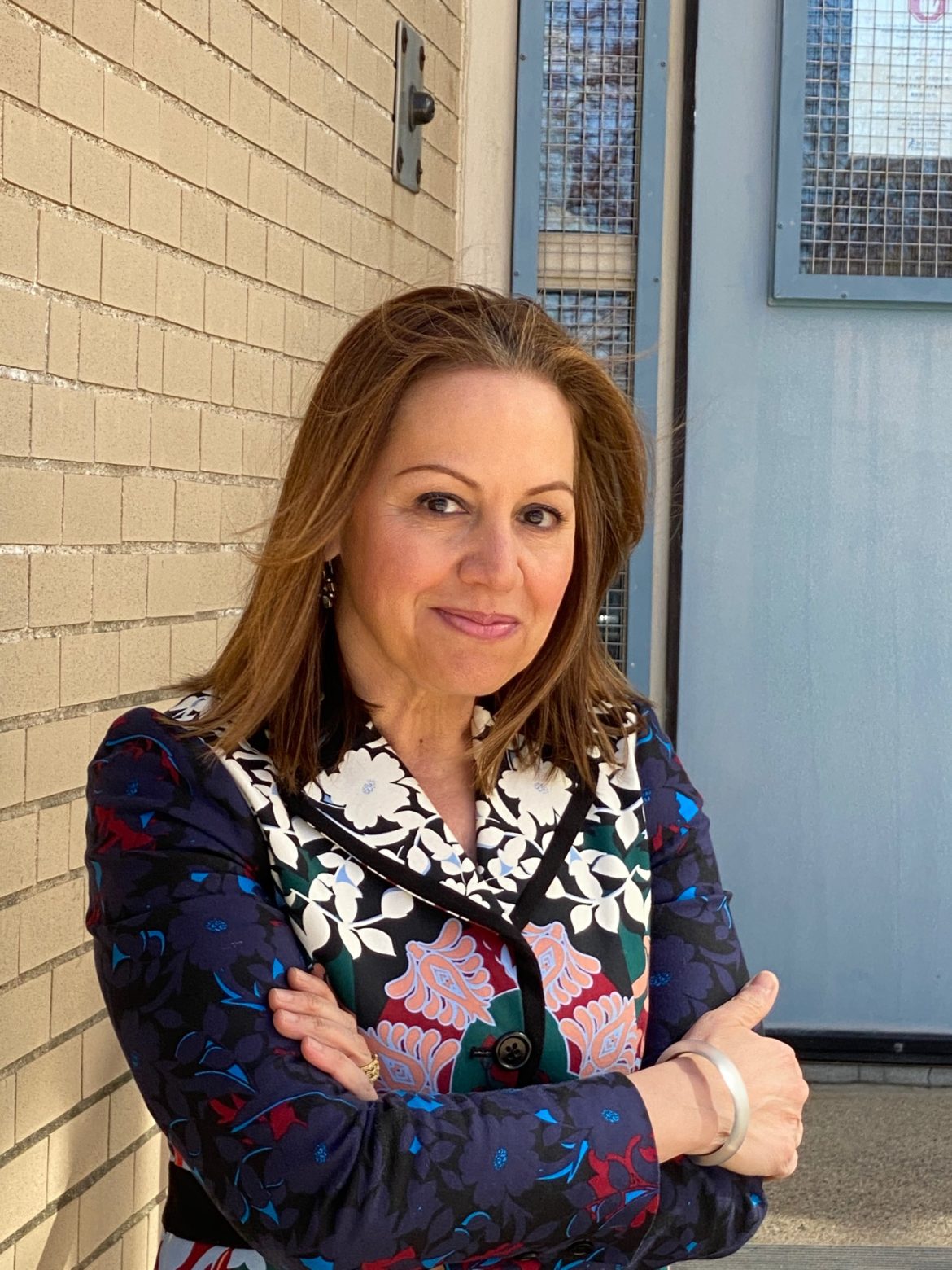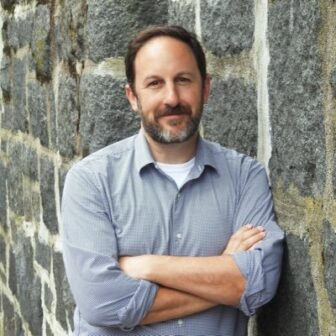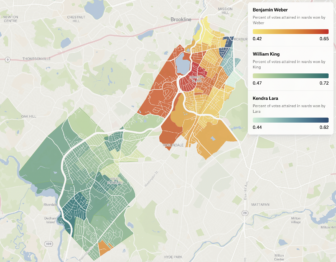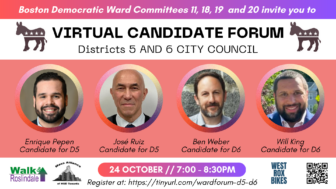Last updated on August 5, 2021
There are three candidates for the Boston City Council District 6 seat being vacated. Winnie Eke, Kendra Hicks, and Mary Tamer fielded the same questions via email from Jamaica Plain News.
September 14th is the preliminary election. Residents can register to vote up to 8 pm on August 25th. Click here to register to vote.
Here is Part I of their answers:
Q: What do you think is the role of city councilor?
Eke: The council is the legislative body of the city. City councilors represent and advocate for all residents of Boston. Councilors help residents access services and resources in the city. They create, pass, and amend city laws, as well as approve annual budget.

Hicks: The role of a district city councilor to me is two-fold. First, as a representative of your district, your role is to represent and support your constituents while being the connector between them and city hall for issues and services directly related to their neighborhood. Second, as a member of the larger body of councilors, our role is to move forth policy that ensures our city is equitable, thriving, and protective of the most vulnerable among us.
Tamer: The two most important functions of a city councilor are delivering effective and responsive constituent services and providing oversight in the city of Boston’s $3.3 billion budget. I also see city councilors having an important role in passing legislation that makes Boston more livable for its residents, ensuring every child has access to quality public schools, making our neighborhoods safe and healthy, supporting the creation of more affordable housing, and utilizing local strategies to combat climate change.
Q: What do you think is the most frequent problem constituents want help with, and how will you help them?
Eke: Housing. I will call and find out resources available for temporary housing while I work diligently to find a permanent housing through BHA (Boston Housing Authority), and possibly vouchers for rental.
Hicks: From my conversations with both voters and current city council staff, one of the top concerns facing residents is accessing affordable housing and remaining in their homes. Unfortunately, the vast majority of new development isn’t affordable even at middle-class wages, let alone for people with limited financial resources and need stable housing. If we want to see development without displacement, we need to commit to increasing the proportion of income-restricted affordable units in new buildings, make sure these units are truly affordable; not just affordable at 80% AMI (area median income), rent control, and expanding community land trusts to build sustainable, affordable housing.
Tamer: As a former Boston School Committee member, I’ve helped countless families navigate the often frustrating bureaucracy in BPS. I have a unique perspective and understanding of the challenges families face — from English learners and students with disabilities seeking services and placements; families navigating the student assignment process; and connecting students with after school and enrichment programs. I look forward to working closely with BPS stakeholders to ensure that every child in Boston can access a high quality education that will allow them to thrive. Whatever the issue may be, I believe in follow up, follow through, and accountability, because that is what every resident deserves from their local elected officials.
Q: Jamaica Plain doesn’t have a dog park. There is no official dog park within the Southwest Corridor area. DCR scrapped plans for a dog park in JP. What will you do to get a dog park in Jamaica Plain?

Eke: Although the state pulled out of the plan, I will work with the residents and neighborhood associations in Jamaica Plain to create a plan that will focus on city properties and developers in the area. I will focus on areas within the city’s jurisdiction and city land as was done with Stonybrook Neighborhood Association. There are more dog owners in Jamaica Plain and it is important that a larger park that will serve the constituents is situated in the area.
Hicks: I have met with some of my neighbors who have been organizing themselves to advocate for a dog park in JP. I think it’s a big issue that we have no places in the neighborhood where dogs can roam freely and off their leash, and although some of these plans have been put to rest, I am committed to working with people in the district to advocate for a dog park in JP.
Tamer: I’ve heard from a number of dog owners in both Jamaica Plain and West Roxbury who are eager to have a designated space for their dogs to be off leash, and it’s clear from my daily door knocking (and the significant increase in dog licenses) that our dog population has grown tremendously across District 6 during the past year. I’m proud to have been endorsed by Massachusetts Voters for Animals and look forward to working closely with other animal advocates and building consensus with residents to make a dog park a reality in District 6.
Q: In recent months a property owner, Montgomery Gold, sued to stop two nearby projects, one that would provide 202 units of supportive housing, and another project that would provide low-income senior housing. Gold’s tenant, Turtle Swamp Brewing, also sued to stop one of the projects. What, if anything, would you do in your role as city councilor in regards to this situation?
Eke: I prefer to have the units. I will suggest we go back to negotiation. It is true that creating more parking spaces for the development may increase the price of the units, but in the absence of no affordable units, having these units with some more parking spaces to allow the brewing company to function, including have street parking for their business could be a workable trade off.
Hicks: In the middle of a housing crisis, the city needs to respond to increased demand in creative ways, and business owners need to work with the city when these changes are being proposed. Structural changes need to be made, such as the work by Councilors [Matt] O’Malley and [Kenzie] Bok to eliminate parking minimums. I am committed to continuing to build on what Councilor O’Malley has done to removing barriers that make increasing our affordable housing stock difficult.

Tamer: As city councilor, I will be a vocal supporter of creating and increasing access to affordable housing in District 6. In any proposed development project, I will work closely with residents and the community to ensure that the project benefits the community.
The decision of this property owner to sue to stop an affordable housing project is NIMBYism (Not In My Backyard) at its worst and contrary to what we should be striving for as a community. I would work closely with the affordable housing developer and convene elected officials and other supportive parties to ensure that what was approved by the city is getting built on schedule.
Q: What legislation would you propose in your first 150 days and what do you want it to accomplish?
Eke: I will propose legislation for a living wage combined with making employers in the city to make pay grades public. This will help many citizens who are poorly paid or under paid, especially minority populations and women [to] have equitable pay and therefore have resources for daily living, including housing.
Hicks: One of the most critical issues facing Boston is the need to return to an elected school committee. An elected school committee, one that is accountable to the people it represents, will better address the needs of schools, teachers, students, and families. It’s the fundamental change we need to ensure our school districts are equitable and thriving. Therefore, I will expand the scope of current city charter reform initiatives, and if required, I will spearhead the home rule petition application to the state legislature.
Tamer: I recently released my Boston Arbor Initiative which is focused on making our neighborhoods greener, healthier, and more sustainable by expanding Boston’s tree canopy, enhancing green and open spaces, and investing in local strategies to combat climate change and to make the city more climate resilient. This would be the first component of an expansive environmental sustainability legislative agenda I would file before the City Council.
I would also author legislation to create greater oversight mechanisms for spending the federal American Recovery and Reinvestment Act (ARRA) funding that could be transformative for Boston if spent properly, but devastating if squandered.
Finally, I would establish a task force to take a deep dive into the state’s 2020 audit of the Boston Public Schools, with a focus on the 30-plus BPS schools that fall into the bottom 10 percent of schools statewide to determine what is needed in order for them to be positioned for success. These schools educate nearly 17,000 children and have performance levels that fall below districts that are in state takeover. I’ll also push for full-day early education for all three- and four-year-olds in Boston, as well as the utilization of the ACE (Adverse Childhood Experience) framework at a child’s earliest point of BPS entry as a diagnostic to determine exactly what every student needs to be supported for success.




